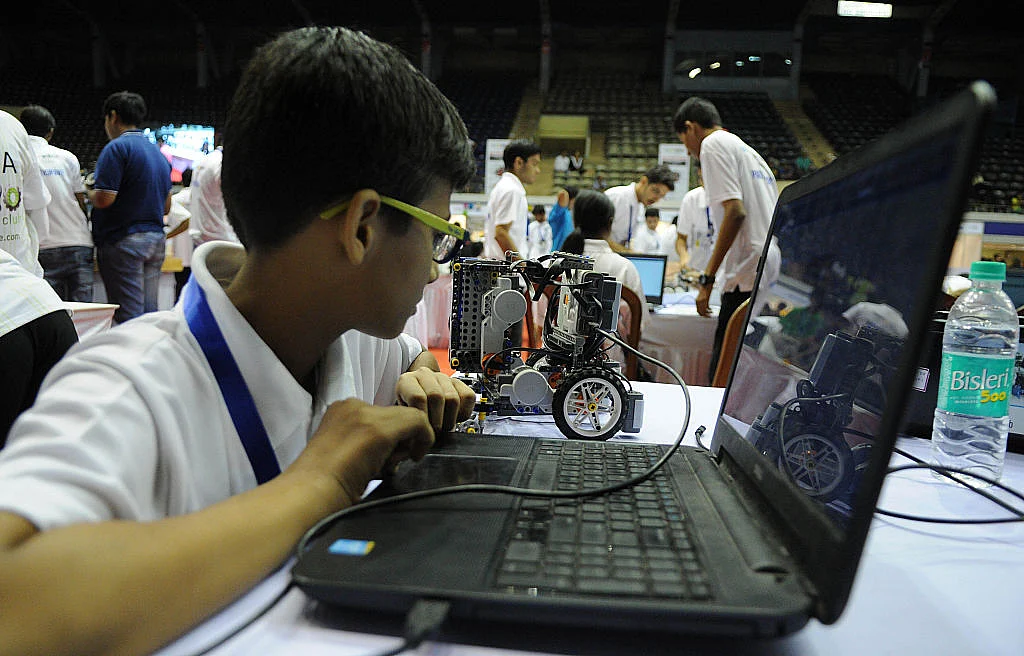New jobs for the brave new world
While 69% of the Indian workforce are threatened by automation in the not too distant future, re-skilling of existing workforce and overhaul of technical education are needed for new, high-skill jobs

The transformation of the Indian Information Technology (IT) sector from a $5 billion industry contributing just over 1% of India’s GDP in the late nineties to a $150 billion behemoth currently, making up almost 8% of India’s GDP, should arguably be the biggest success story of modern Indian economic history.
The huge talent pool of low cost, skilled, English-speaking engineers encouraged every global technology giant to set up their services and back-end operations in India. Currently, the Indian IT industry directly and indirectly employs a population of over a crore and is the chief contributor towards the social mobility of millions of Indians into the burgeoning middle class.
The sector with IT services and Business Process Outsourcing (BPO) as its two major pillars is the world’s largest sourcing destination for the IT industry with over 67 % of the global market share.
The smooth sailing and growth of the industry has, however, started hitting rough patches. The previous twelve months have seen some of the biggest names in technology ranging from Microsoft and Cisco to Infosys and FlipKart taking decisions to downsize their workforce.
The upcoming years would definitely see sizable job losses in the Indian IT services sector on account of the advent of various artificial intelligence (AI) and robotics based automation technologies and the growing protectionism against outsourcing in the western world.
These incidents do give us more than enough reasons to seriously contemplate on some of the latest reports by organisations like the World Bank that has estimated 69% of Indian workers to be threatened by automation in the not so distant future and that of a US-based research firm (HfS Research) predicting India’s IT services industry to lose 6.4 lakh “low skilled” jobs to automation in the next five years.
The rhetoric of every nationalistic politician running for public office in the developed world the last decade had among their favourite taglines, the prevention of local jobs getting outsourced to ‘Bangalore’ right alongside the stoppage of manufacturing jobs getting relocated to China. President Trump had bringing back jobs to the United States as one of his topmost priorities during his 2016 campaign trail.
The stuttering state of the global economy is creating similar populist and insular political movements across the western world. The current US administration’s aggressive efforts to rein in outsourcing of services and curb the issuance of H1B employment visas would be a body blow to the Indian IT services industry.
The upcoming years would definitely see sizable job losses in the Indian IT services sector on account of the advent of various artificial intelligence (AI) and robotics based automation technologies and the growing protectionism against outsourcing in the western world.
However, every challenge presents a novel opportunity.
- The HfS report states that though "low-skilled" jobs will fall by 30%, "medium-skilled" jobs will increase by 8% and high-skilled jobs will rise by 56%
- The declining revenues would force the Indian IT service industry to look at alternative streams of revenue for survival. The recent past has seen growing interest among the titans of the Indian IT sector like TCS and Infosys to move further up the value chain
- Major Indian corporate houses are investing into areas as diverse as clean energy to defense to telecommunication technology with an emphasis on indigenous product creation
- We are seeing a new wave of entrepreneurs focusing on cutting edge products in areas like finance, big data, cyber security and network security.
These emerging high technology verticals would create large number of skilled and certified employment opportunities. This would mean the retraining and reskilling of a large section of our existing technical workforce that would otherwise turn obsolete in the new technological ecosystem.
This would also require an overhaul of the existing technical education system to ensure that our future graduates are well equipped with the skill sets to fit into the new technology landscape. These transformations have the potential to reposition and elevate India into a global high technology powerhouse.
Anil K Antony is a Technology & Social Entrepreneur, Venture Architect with experience of high technology projects in the Silicon Valley and India
This is an opinion piece and the views expressed above are the author’s own.
Follow us on: Facebook, Twitter, Google News, Instagram
Join our official telegram channel (@nationalherald) and stay updated with the latest headlines
- jobs
- China
- Donald Trump
- Bangalore
- World Bank
- United States
- automation
- robotics
- Cisco
- H1B visas
- artificial intelligence
- Infosys
- Microsoft
- IT industry
- Indian workforce
- workforce
- reskilling
- technical education
- high-skill jobs
- Information Technology
- IT services
- Business Process Outsourcing
- BPO
- FlipKart
- HfS Research
